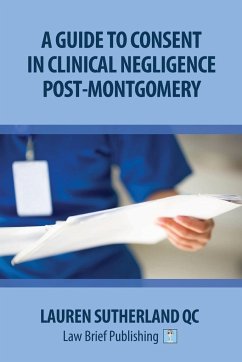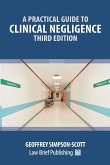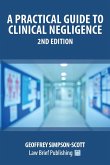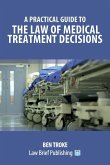For many years, the law in the UK on consent was singularly out of step with other Commonwealth jurisdictions. Now the recent decision of the Supreme Court in the case of Montgomery v Lanarkshire Health Board has clarified the position in the UK and firmly recognised the rights of the patient in this area of the law. The Supreme Court has at last recognised the right of the particular patient to make informed choices about their own health care, that information disclosure to patients should be treated differently in law from issues relating to diagnosis and treatment, and therefore that in law the professional practice test is not an appropriate test to be applied in information disclosure cases. The case has had far-reaching implications for many, and has led to the introduction of a patient-focused test to the law on consent, and a change in practice. This book is intended equally for students, lawyers, doctors and other members of the health care professions. It sets out in full, the legal arguments advanced through the various stages of Montgomery v Lanarkshire Health Board to its final conclusion in the Supreme Court. It analyses the law on consent prior to the Supreme Court decision in Montgomery and the arguments made in Montgomery in the Scottish courts and the Supreme Court and also considers how the decision has been interpreted by the courts since. In addition there is analysis of the law on consent in other jurisdictions, particularly Australia and Canada. The Supreme Court specifically endorsed the twofold test in the Australian case of Rogers v Whitaker. It is suggested the approach found in these jurisdictions holds the key to understanding how the Supreme Court wished to develop the law on consent and the test to be applied. Those who wish to advance and develop the law in the UK should be familiar with the decisions of those jurisdictions. ABOUT THE AUTHOR Lauren Sutherland QC called to the bar in 1996 and took silk in 2016. Since being called to the bar she has specialised in clinical and professional negligence, and human rights issues in medical law. She is ranked in both Chambers UK and the Legal 500 for clinical negligence (Band 1). She has written and lectured extensively in the area of personal injury and clinical negligence. For many years, she taught 'consent' to dental and medical students. She was part of the legal team in the land-mark case of Montgomery v Lanarkshire Health Board [2015] UKSC 11.
Hinweis: Dieser Artikel kann nur an eine deutsche Lieferadresse ausgeliefert werden.
Hinweis: Dieser Artikel kann nur an eine deutsche Lieferadresse ausgeliefert werden.








